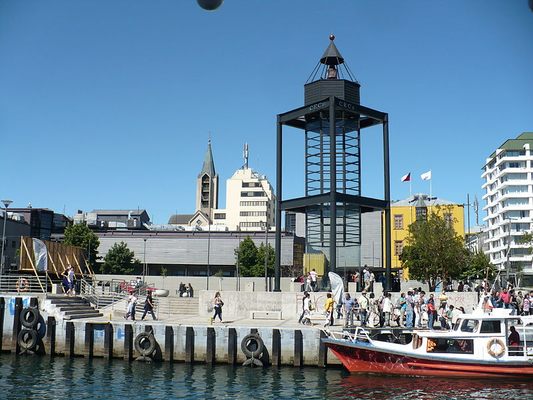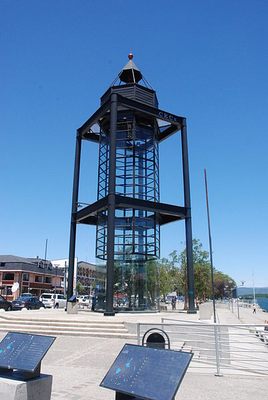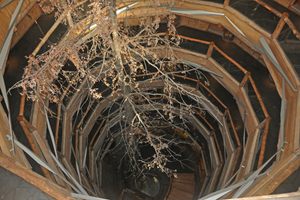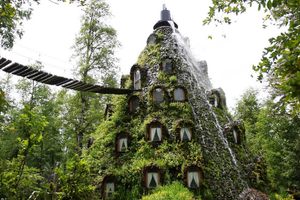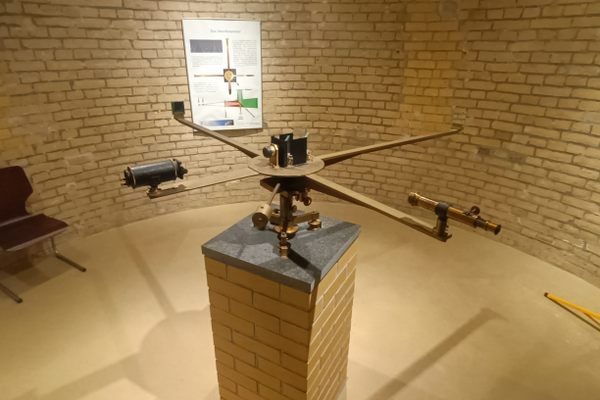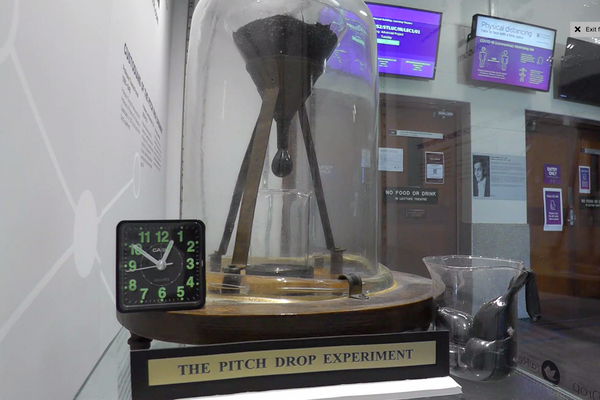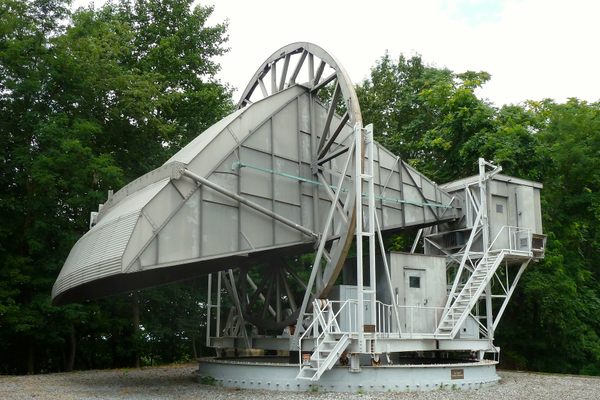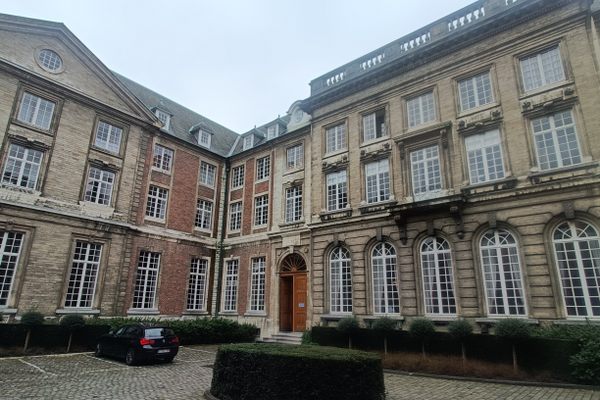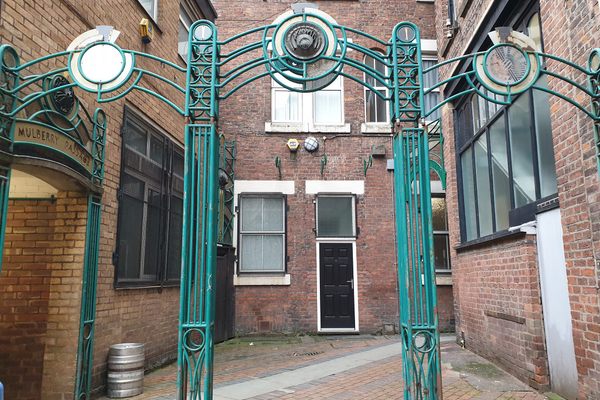About
A hypnotic 220-pound chrome-plated lead ball has been swinging every 7 seconds on a 42-foot-long steel wire in this monumental glass and steel structure. Topped by an antique 19th-century lighthouse lamp and towering over Valdivia's riverside, the tower houses the world’s most southerly example of a Foucault Pendulum.
The Valdivia pendulum was created by Spanish physicist Miguel Cabrerizo in 2007, based on the works of French scientist Léon Foucault, who in 1851 set out to visually demonstrate that the Earth spins about its axis. A replica of the 1851 original Foucault Pendulum now hangs in the Paris Pantheon.
To the earthbound observer, the plane of a Foucault pendulum’s swing appears to rotate, but this is an illusion. In reality, the swing of the pendulum stays on a steady plane relative to space and the Earth is the one that's doing the spinning.
Unlike the Parisian original, which seems to rotate clockwise, the sweeping swing of this Southern Hemisphere example appears to advance a fraction counter-clockwise with each pass. If, hypothetically, there were a Foucault Pendulum positioned right on the equator, it would appear to swing back and forth in just one plane with no observed rotation.
Although a temporary Foucault Pendulum was erected at the South Pole in 2001, at almost 40° South, Valdivia's is currently the world’s most southerly. This Chilean example appears to the dedicated observer to complete a 360° counter-clockwise rotation every 36 hours. A less patient observer could verify this fact in around the time it takes to walk round the nearby craft market, as a 10° shift in the plane of swing relative to Earth appears to occur every hour.
If the physics of the mesmerizing ball is a bit baffling, passersby can admire the impressively towering glass-lighthouse-like structure it is housed in instead. The antique lamp which tops the pendulum’s glazed home is today of little use to passing pleasure boats in the Calle Calle river, but it once guided ships in the nearby bay of Corral.
Related Tags
Know Before You Go
The Pendulum is located on the Avenida Arturo Prat, also known as the 'Costanera de la Ciencia' or 'Coast Road of Science', and is found opposite the Center for Scientific Studies.
Community Contributors
Added By
Published
January 23, 2018





